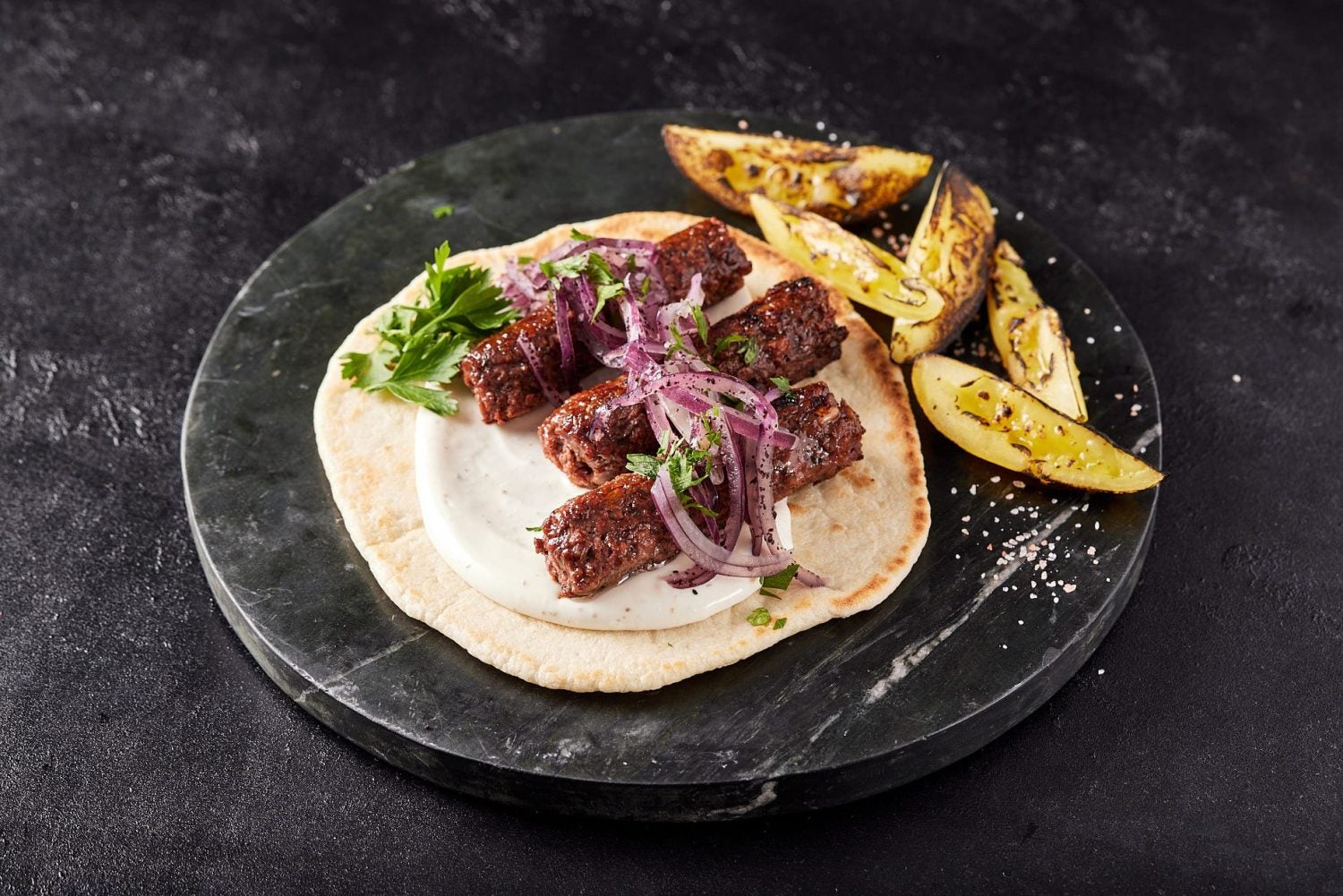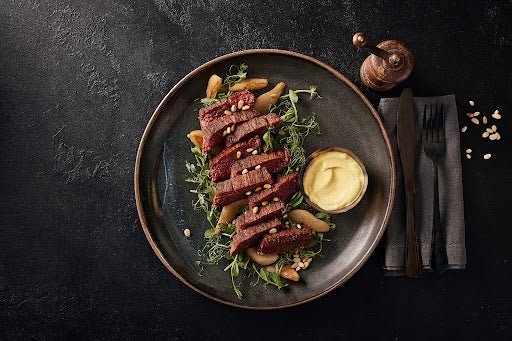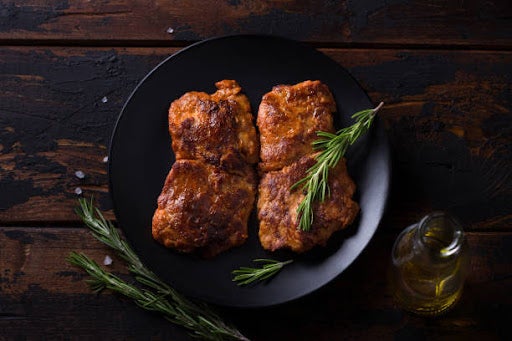The future of meat substitutes is here, and it’s delicious, nutritious, and ‘meaty’
Most folks ordering a steak opt for something in the middle of the spectrum from raw to well-done. But there’s always that person who offers up a cliched line such as, “I want it still mooing.” These lovers of “rare” steak assume the “juice” is blood – but that’s not actually the case: it’s a protein that delivers oxygen to an animal’s muscles called myoglobin mixed with water. But no matter how one prefers steak, for all but the most die-hard, eating an animal comes with some reservations. Most of us prefer not to be reminded that the slab on our plate was not long ago a cow with a not fully understood degree of sentience. And our prime rib comes with the knowledge that an animal very likely endured much fear and pain so that we could enjoy a piece of it. Even for those with no ethical concerns, consuming that filet comes with the knowledge that you’ve probably done harm to your body. Heck, the World Health Organization goes as far as saying red meat is “probably carcinogenic to humans.”
Setting aside both morality and health, there’s still the glaring reality of the environment. Cows (and pigs, as well as most other animals raised for food) use up huge amounts of resources – such as water and land for growing feed. Sure, there are some who don’t give a hoot about the future of the planet, but most of us know the current model of how we get animal protein isn’t working and has no chance of being sustainable as demand for meat increases with the global population. Like an addict, however, we may ‘know’ all the facts, but we can’t help ourselves. Meat tastes good. Meat is satisfying. These ‘facts’ trump reality. People in the meat substitute business have taken a while to understand this, but at last, there’s a tasty meat option that is 100 percent animal-free and uses all-natural ingredients.
Nope. It’s not one of those fancy ‘bleeding’ veggie burgers. The meat substitutes on store shelves (or in some fast-food chains) right now are nice, but they lack that important sense of ‘meatiness.’ Why is steak so popular? Because it has so many elements: texture, flavor, smell, fat, muscle, mouth-feel, and ‘look,’ all of which in combo equal satisfaction and even emotions of happiness for many … “Now that was a good meal!” You can’t get that from a veggie burger. But happily, technology has moved way past ‘bleeding’ plant burgers. People trying so-called “new meat” in Israel (a place with a rich history of culinary influences; none of which are meat-shy) are giving it a score of 90+ percent. That’s insanely high! Of course, it’ll be rejected by the “give it to me mooing” crowd, but they’re a dying breed. Young people in the 2020s, including teenagers, are more aware and educated about environmental issues than any generation in history. And they’re also much more likely to have ethical concerns about the almost unavoidable cruelty involved in the meat production process. Plus, they’re into “wellness,” which obviously includes diet. These folks, many perhaps born after the year 2000, are soon to be the world’s dominant consumers, and they’re interested in alternatives and open to new ideas.
Now worth an estimated US$8 billion, the “alternative meat” market has nowhere to go but up. And, while animal meat is set to rake in US$1 trillion annually by 2025, it’s an industry that can’t defy the laws of mathematics for too much longer. If and when drought becomes the norm, who’s going to be ok with annually giving up close to half of the water in America for raising animals for food? How can 1,800 gallons of water in return for a pound of beef be justified? –Because beef tastes good? Um…OK. But three days or so without water and flavor becomes a moot point. Technology is the only reason that there are now reportedly more people on earth who are overweight than suffering from extreme hunger. It’s now time for tech to help us conquer our over-fondness for food from animals. Meat helped us evolve into fully sentient beings, and deserves a respected place… in history books. Necessity, it’s said, is the mother of invention, and there’s currently no shortage of necessity. And, it appears, invention is stepping up to the plate. Alternative meat options point to a potentially sustainable future where we get to enjoy both taste and… well, living on this planet.
A century from now, one of your descendants might watch a documentary in their home on one of Jupiter’s moons about the ‘savage’ days of humanity – “back then,” the narrator will intone, “if you can believe it, people actually ate animals! Like, every day!” But for those of us living now, the love of meat is still a part of being a 21st century human. We can wean ourselves off our unsustainable meat addiction, but probably only with options that first satisfy those ‘savage’ desires.



















